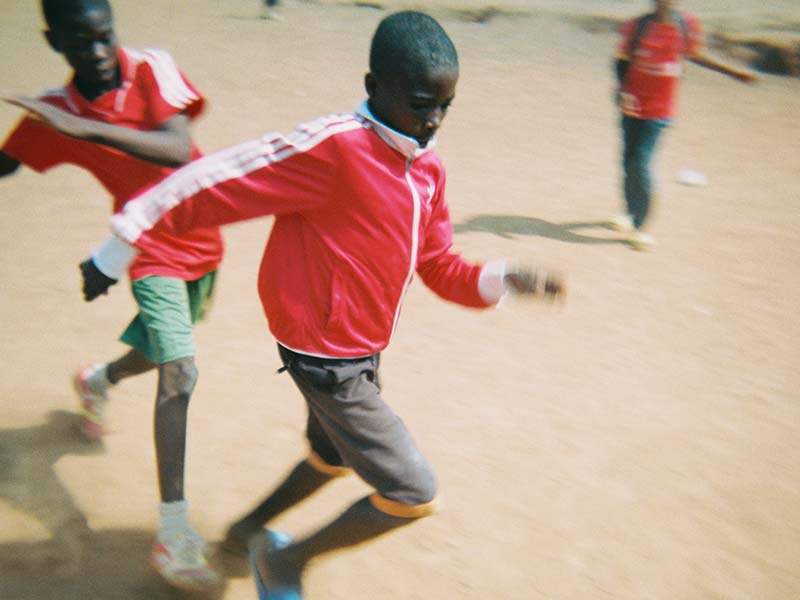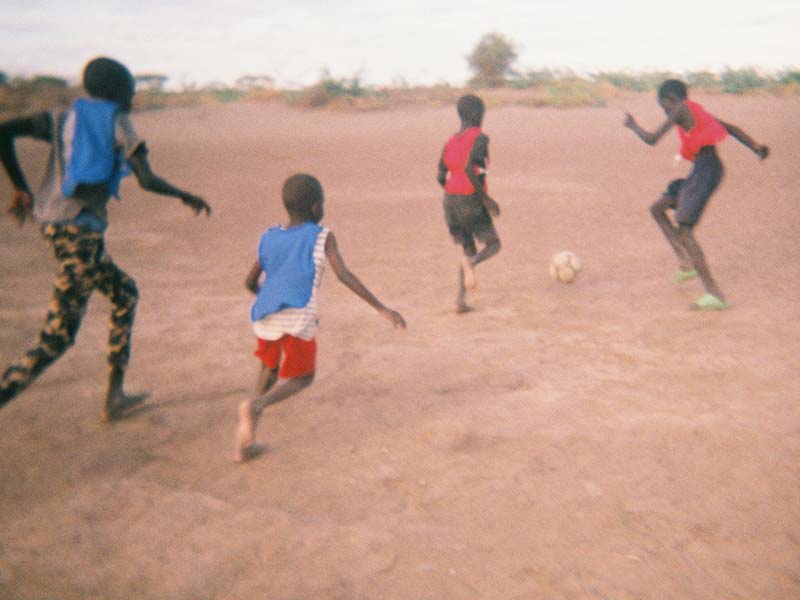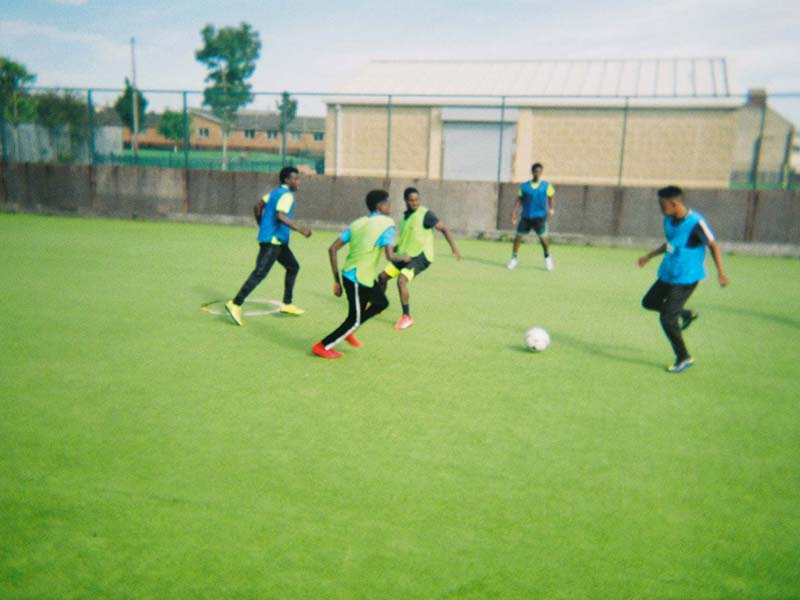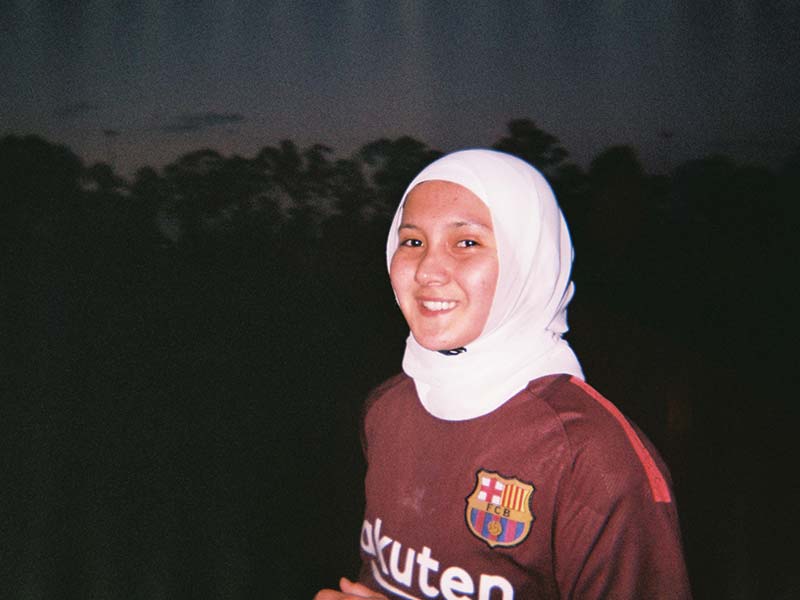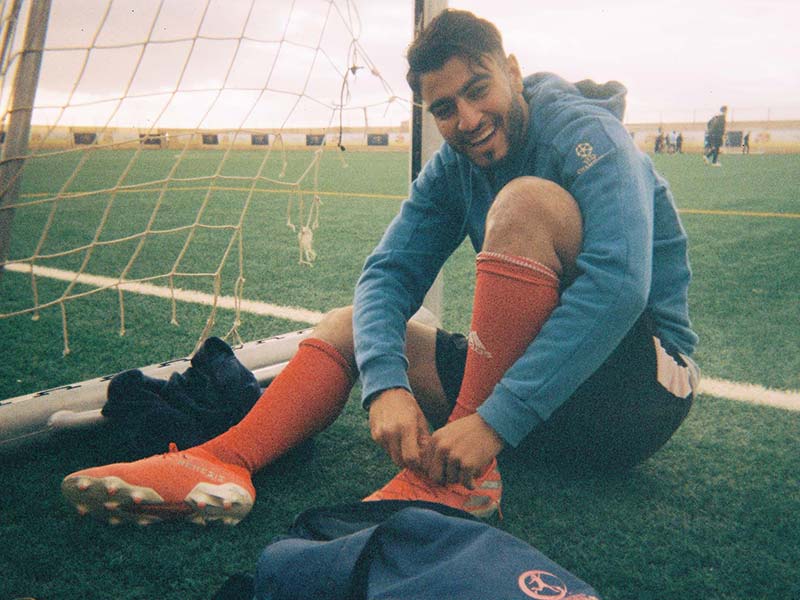Opening doors for Afghan girls in Australia & Austria
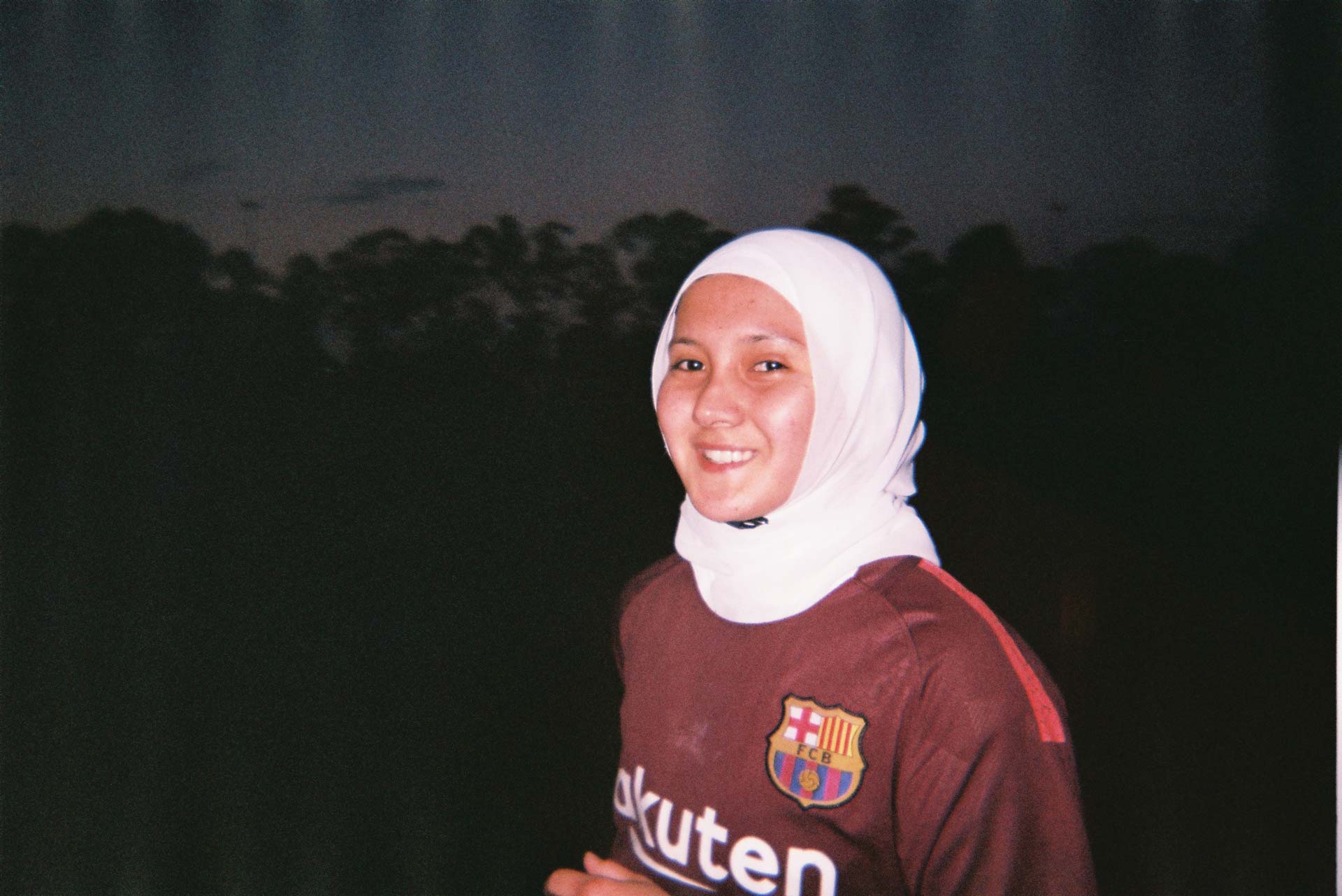
Opening doors for Afghan girls in Australia & Austria
© Goal Click/UNHCR/Football United/Shegofa Hassani
In some societies, women and girls face discrimination and violence every day, simply because of their gender. An ordinary task like collecting water or going to the toilet can put them at risk of abuse. In times of displacement, women become more vulnerable, especially those who are unaccompanied, pregnant, heads of households, disabled or elderly. UNHCR works with refugee women to try to ease their struggle, ensuring safe shelters that offer privacy, fair access to food and services, tailored support and separate sanitation facilities.
UNHCR also manages programmes that help women to improve leadership skills, overcome barriers to education, and access opportunities. In developed countries, the issues for female refugees are different but challenges remain. UNHCR and partners try to promote participation in sport for women as a means of improving self-worth and confidence
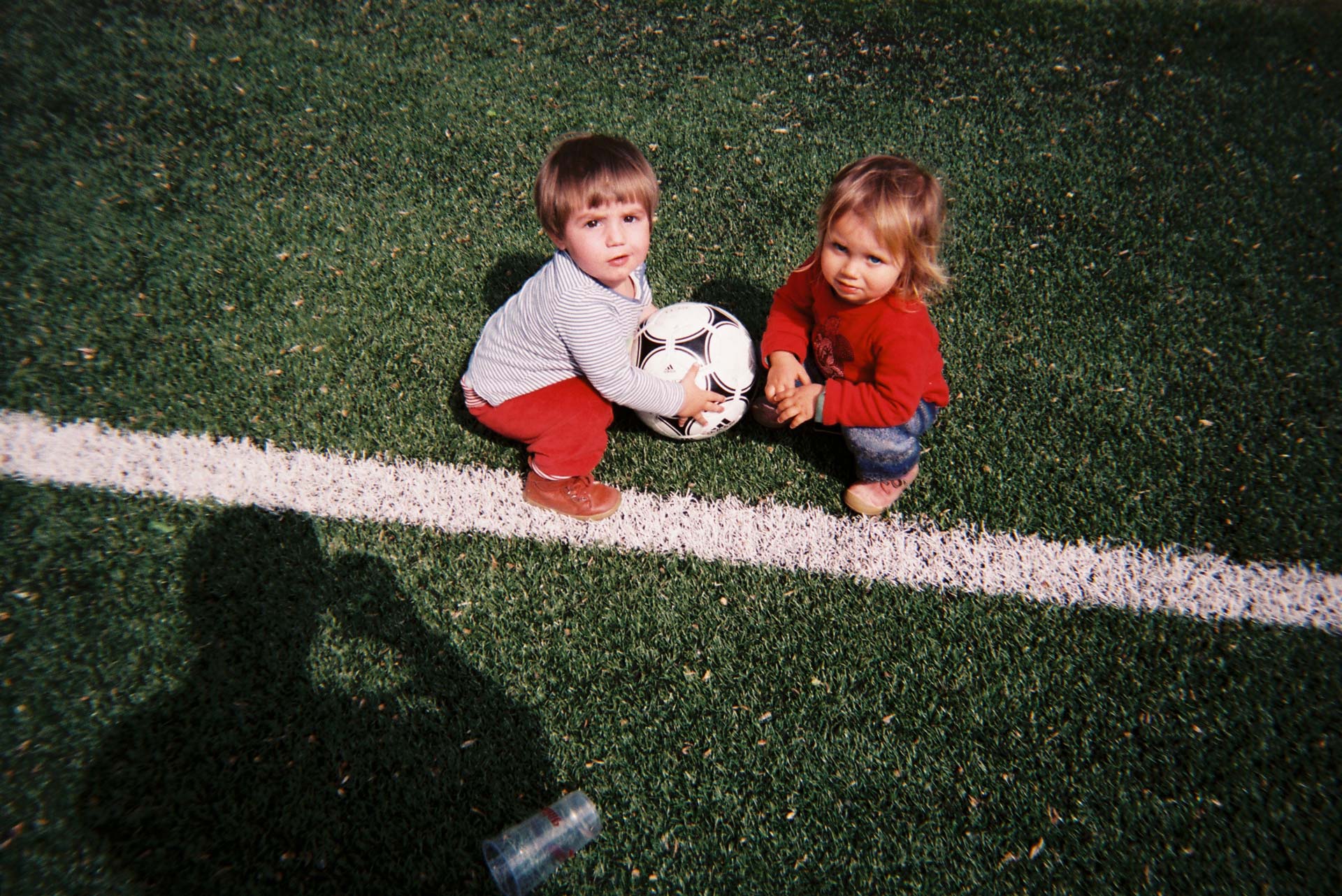
© Goal Click/UNHCR/Kicken ohne Grenzen/Khadija Ahmadi
Austria and Australia are both countries where female refugees have a chance to play football and follow their dreams. Both countries provided case studies for Goal Click Refugees. In Austria, organisations such as Kicken ohne Grenzen (KOG) and Caritas opened their doors to new arrivals, with a particular focus on young Afghan girls. Kicken ohne Grenzen enables youths like Khadija Ahmadi, 20, to take part in regular, free football training, whilst providing educational opportunities for refugees to facilitate entry into schools or working life. “Team Birkenwiese”, a team for refugee girls, plays once a week and takes part in regular friendly matches and tournaments. Caritas Austria, a Catholic social aid group, also organises the Austrian Homeless World Cup team that saw Sofia, 19, compete in the 17th Homeless World Cup in Cardiff in 2019.
Meanwhile in Australia, Football United (a University of New South Wales program) aims to build the capacity of young people through leadership, coaching and regular, free and accessible football. The Football United program focuses work in communities with refugee families from Iraq, Syria, Myanmar, Sudan, and Afghanistan. Shegofa Hassani, 21, is the coach of their Afghan girls team, Sydney United Girls.
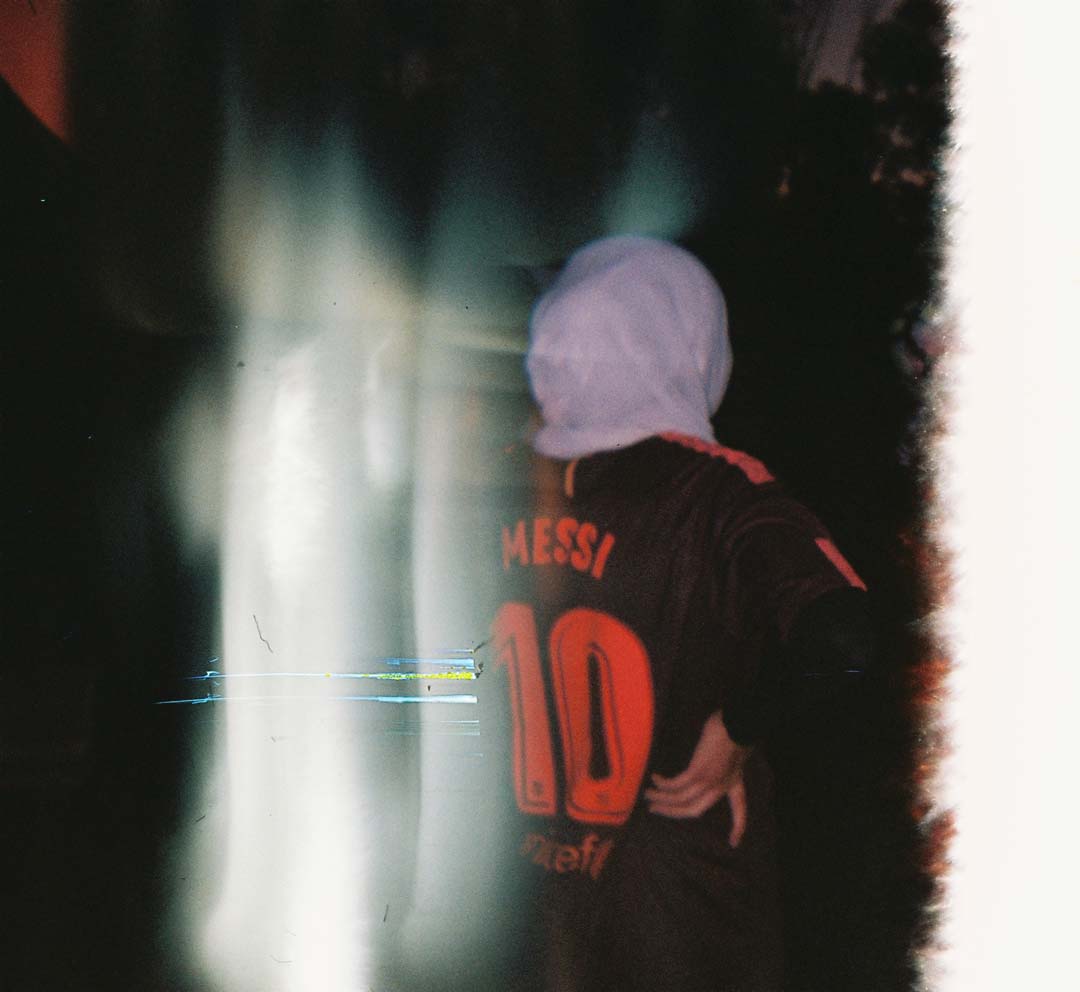
© Goal Click/UNHCR/Football United/Shegofa Hassani
‘I want more and more Afghan girls to dream big,’
Shegofa, Australia (Football United)
“I came to Australia as a 9-year-old. We fled Afghanistan because of the conflict. I started playing football in the park with my brothers and dad. As my brothers started to play with a club, naturally I wanted to follow but initially my mum was reluctant because of our culture and what people would say. We convinced my mum to let me play and I’ve been playing for over 12 years – I am currently a player and coach with Football United. Now I manage an Afghan girls team called Sydney United Girls.
None of our girls played football back in Afghanistan because girls were not allowed to play. Of course, that has changed now, we have a national side.
The photos show Shogofa Rahimi at a Sydney United Girls training session in Sydney. Her passion for football started as a child when she played with her brothers. However, she hesitated to pursue it further because of cultural barriers and her family. After years of giving up hope of playing football, she finally got the opportunity to play with Sydney United Girls, when her brother introduced her to the team. Initially her parents did not approve, however, they have learned to accept it and encourage her to follow her dreams.
I tried to capture the girls in the moment, enjoying the session even as we trained into the darkness. We train in the local park with no access to club facilities.
I feel like my truest self when I am on the football pitch. It is where I feel most empowered and most connected with people around me. And recently it has given me the opportunity to reconnect with my Afghan community and my culture through the team. It is important for my community because a lot of people still don’t think Afghan girls should play sport, and this allows us an opportunity to prove them wrong and stay active and socially connected. Even though we are an Afghan team, everyone is welcome to train with us. We find Australian people to be kind and welcoming.
I want more and more Afghan girls to dream big and follow those dreams. Too many of our girls are only dreaming and not following those dreams because of cultural, family and financial barriers. We aim to eliminate barriers by building trust, being visible and doing our thing.”
Photo: © Goal Click/UNHCR/Football United/Shegofa Hassani
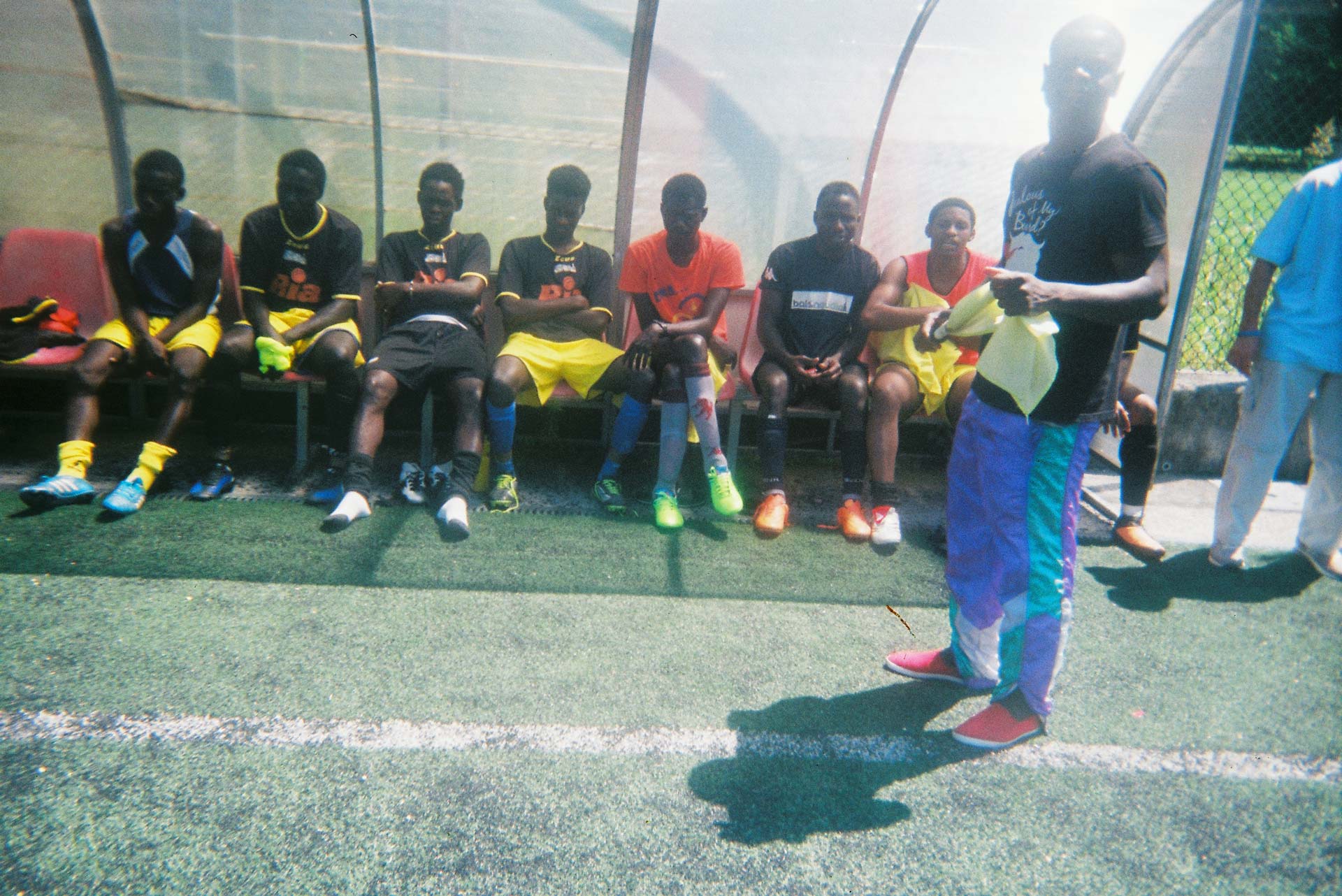
© Goal Click/UNHCR/Football United/Shegofa Hassani
‘I want more and more Afghan girls to dream big,’
Shegofa, Australia (Football United)
“I came to Australia as a 9-year-old. We fled Afghanistan because of the conflict. I started playing football in the park with my brothers and dad. As my brothers started to play with a club, naturally I wanted to follow but initially my mum was reluctant because of our culture and what people would say. We convinced my mum to let me play and I’ve been playing for over 12 years – I am currently a player and coach with Football United. Now I manage an Afghan girls team called Sydney United Girls.
None of our girls played football back in Afghanistan because girls were not allowed to play. Of course, that has changed now, we have a national side.
The photos show Shogofa Rahimi at a Sydney United Girls training session in Sydney. Her passion for football started as a child when she played with her brothers. However, she hesitated to pursue it further because of cultural barriers and her family. After years of giving up hope of playing football, she finally got the opportunity to play with Sydney United Girls, when her brother introduced her to the team. Initially her parents did not approve, however, they have learned to accept it and encourage her to follow her dreams.
I tried to capture the girls in the moment, enjoying the session even as we trained into the darkness. We train in the local park with no access to club facilities.
I feel like my truest self when I am on the football pitch. It is where I feel most empowered and most connected with people around me. And recently it has given me the opportunity to reconnect with my Afghan community and my culture through the team. It is important for my community because a lot of people still don’t think Afghan girls should play sport, and this allows us an opportunity to prove them wrong and stay active and socially connected. Even though we are an Afghan team, everyone is welcome to train with us. We find Australian people to be kind and welcoming.
I want more and more Afghan girls to dream big and follow those dreams. Too many of our girls are only dreaming and not following those dreams because of cultural, family and financial barriers. We aim to eliminate barriers by building trust, being visible and doing our thing.”
‘There are many opportunities for women here,’
Sofia, Austria (Caritas)
“I’m Sofia, I am 19 years old, from Afghanistan and unfortunately I was raised in Iran. I have been living with my family in Austria for four years and have six older brothers. I was not allowed to play football as a girl in Iran, I was always criticized for being an Afghani in Iran. I never had the idea to play football, as I only ever saw boys playing.
When I was new here in Austria, I went to the youth centre. At that time, I hated football. But the youth centre offered me the chance to play football, and I said I would try it for one day. But in that one day, I saw I really liked it.
It wasn’t very easy with my family at first. We had some discussions about why I was playing football and not wearing my headscarf anymore. But I kept fighting for this and now everything is fine. Everyone just accepts that I play football. One day there was an invitation to try out for the Homeless World Cup team. And I was selected to represent Austria.
It means that everyone sees me as a human being. In Iran I wasn’t accepted. No one spoke to me and I was more or less ignored. But here I am part of a team and that is what I really enjoy and love.
I am very happy that I am allowed to live in Austria. I spend my whole day playing football. I love football and my food is just a ball – it gives me energy. Hopefully someday I can help all the girls in my country so they can get involved in sports. I also had tough days because of football, but for me life is like a carousel and it always turns.
There are many opportunities for women here. Sometimes I think it is a paradise here because there are good opportunities for everything. Austria is exactly the opposite of my country, because unfortunately my country is hellish for women.”
© Goal Click/UNHCR/Caritas Austria

© Goal Click/UNHCR/Caritas Austria
‘There are many opportunities for women here,’
Sofia, Austria (Caritas)
“I’m Sofia, I am 19 years old, from Afghanistan and unfortunately I was raised in Iran. I have been living with my family in Austria for four years and have six older brothers. I was not allowed to play football as a girl in Iran, I was always criticized for being an Afghani in Iran. I never had the idea to play football, as I only ever saw boys playing.
When I was new here in Austria, I went to the youth centre. At that time, I hated football. But the youth centre offered me the chance to play football, and I said I would try it for one day. But in that one day, I saw I really liked it.
It wasn’t very easy with my family at first. We had some discussions about why I was playing football and not wearing my headscarf anymore. But I kept fighting for this and now everything is fine. Everyone just accepts that I play football. One day there was an invitation to try out for the Homeless World Cup team. And I was selected to represent Austria.
It means that everyone sees me as a human being. In Iran I wasn’t accepted. No one spoke to me and I was more or less ignored. But here I am part of a team and that is what I really enjoy and love.
I am very happy that I am allowed to live in Austria. I spend my whole day playing football. I love football and my food is just a ball – it gives me energy. Hopefully someday I can help all the girls in my country so they can get involved in sports. I also had tough days because of football, but for me life is like a carousel and it always turns.
There are many opportunities for women here. Sometimes I think it is a paradise here because there are good opportunities for everything. Austria is exactly the opposite of my country, because unfortunately my country is hellish for women.”
‘Football doesn’t belong to men alone,’
Khadija, Austria (KOG)
“My name is Khadija Ahmadi, I am 20 and originally from Afghanistan. I came to Austria at the end of 2015. A year later, I heard from a supervisor in the youth accommodation where I was staying that there was an opportunity here for women to play football. This is how I came to the Kicken Ohne Grenzen team.
In the training sessions, we were all able to boost our self-confidence, including through workshops and further training opportunities. I learnt a lot at Kicken ohne Grenzen’s BeASkillCoach Academy, for example how to introduce and present oneself correctly. One woman told us how to act and how to ensure that we are noticed. In the courses, I was also able to learn what being a referee is all about. I have since refereed a few games. When there are disputes, it is a big challenge to keep the teams under control. Sometimes you also have to be strict. The same is true at the children’s training sessions where I help out.
At the first match we played with the men, some of the guys were still saying that we should stay at home. We talked to them and tried to show them that we belong here. Football doesn’t belong to men alone. It’s not a man thing. We can play it too if we want. A week later, the guys apologised. That was a good thing. Women can also play football well; it is just that men have been playing it for longer.
I have seen a lot of Vienna thanks to football. We have been to districts I had never been to before and we have been able to get to know the city better. And now, with travelling, our world has got bigger. We fly. We travel. We now want to play football around the world. We have already been to Cologne and Copenhagen.
Through football and my new friends, I’ve been able to find myself again. When I say that, people may think that it’s an easy thing to say. But in my case, it was different. I didn’t know the language; I didn’t know anyone. It’s as if you are being born as a baby again. I think you can only understand it if you’ve experienced it yourself.
One thing that’s changed over all these years is that only a few team members still wear a headscarf. I barely wear the hijab anymore. But that’s only partly to do with football. I simply wanted to integrate. I want to look like who I am and not be seen differently just because of a scarf. It was difficult for me to take a decision. I’d been used to wearing the hijab my whole life. And I always heard that if you don’t wear the hijab you go to hell. But now I feel free.
I just want to have my peace and quiet here in Austria. I had to wait two-anda-half years for the asylum decision. I finally got a positive decision a year ago. Now I want to live independently. I thought an apprenticeship would be good in order to have a stable life. I applied for an apprenticeship as a dental assistant. Unfortunately, I wasn’t taken. I still wasn’t self-confident back then. It’s got a lot better since. When you arrive somewhere new, things aren’t very easy to start with.
Now I have an apprenticeship as an optician.”
© Goal Click/UNHCR/Kicken ohne Grenzen/Saleha Kashfi
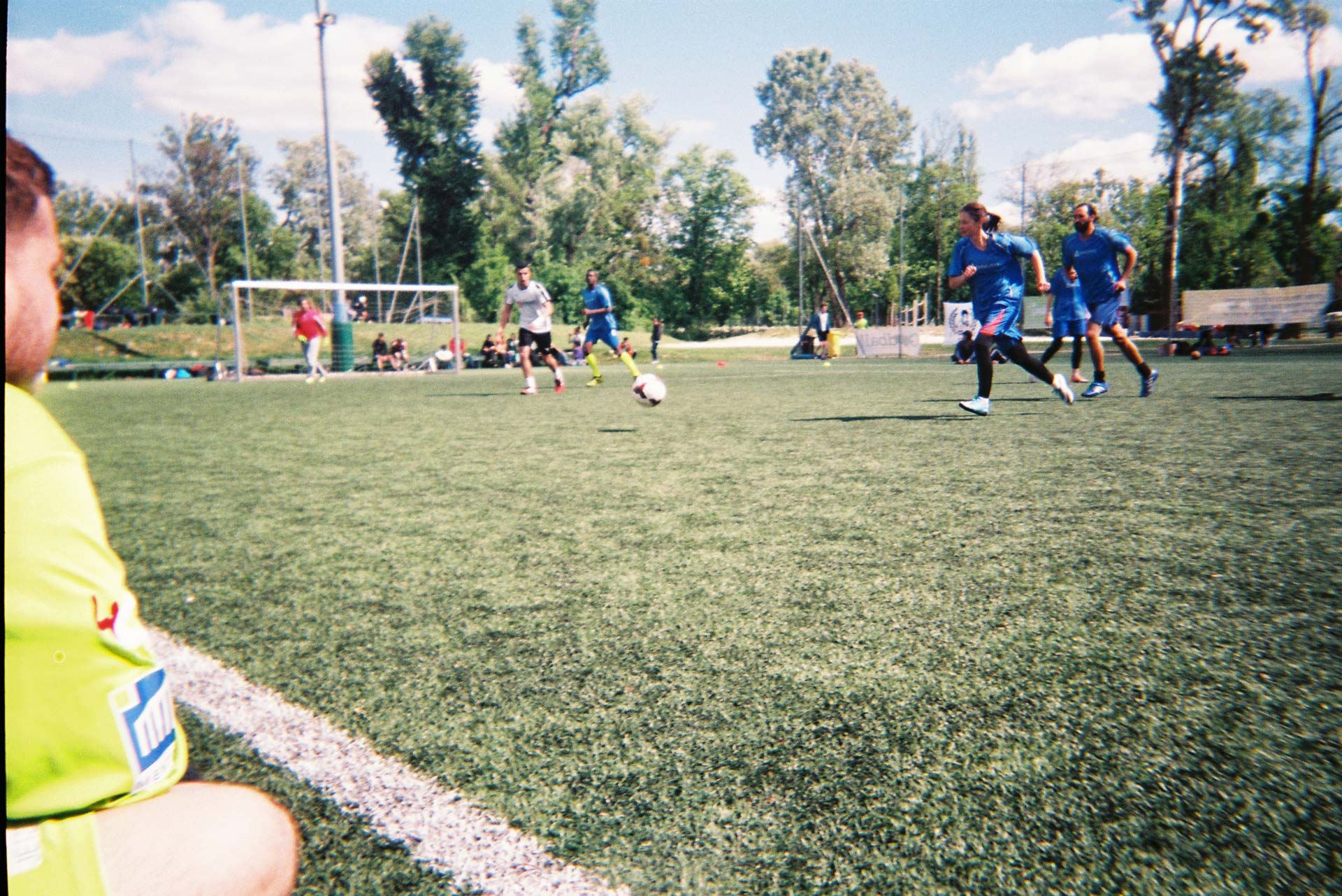
© Goal Click/UNHCR/Kicken ohne Grenzen/Saleha Kashfi
‘Football doesn’t belong to men alone,’
Khadija, Austria (KOG)
“My name is Khadija Ahmadi, I am 20 and originally from Afghanistan. I came to Austria at the end of 2015. A year later, I heard from a supervisor in the youth accommodation where I was staying that there was an opportunity here for women to play football. This is how I came to the Kicken Ohne Grenzen team.
In the training sessions, we were all able to boost our self-confidence, including through workshops and further training opportunities. I learnt a lot at Kicken ohne Grenzen’s BeASkillCoach Academy, for example how to introduce and present oneself correctly. One woman told us how to act and how to ensure that we are noticed. In the courses, I was also able to learn what being a referee is all about. I have since refereed a few games. When there are disputes, it is a big challenge to keep the teams under control. Sometimes you also have to be strict. The same is true at the children’s training sessions where I help out.
At the first match we played with the men, some of the guys were still saying that we should stay at home. We talked to them and tried to show them that we belong here. Football doesn’t belong to men alone. It’s not a man thing. We can play it too if we want. A week later, the guys apologised. That was a good thing. Women can also play football well; it is just that men have been playing it for longer.
I have seen a lot of Vienna thanks to football. We have been to districts I had never been to before and we have been able to get to know the city better. And now, with travelling, our world has got bigger. We fly. We travel. We now want to play football around the world. We have already been to Cologne and Copenhagen.
Through football and my new friends, I’ve been able to find myself again. When I say that, people may think that it’s an easy thing to say. But in my case, it was different. I didn’t know the language; I didn’t know anyone. It’s as if you are being born as a baby again. I think you can only understand it if you’ve experienced it yourself.
One thing that’s changed over all these years is that only a few team members still wear a headscarf. I barely wear the hijab anymore. But that’s only partly to do with football. I simply wanted to integrate. I want to look like who I am and not be seen differently just because of a scarf. It was difficult for me to take a decision. I’d been used to wearing the hijab my whole life. And I always heard that if you don’t wear the hijab you go to hell. But now I feel free.
I just want to have my peace and quiet here in Austria. I had to wait two-anda-half years for the asylum decision. I finally got a positive decision a year ago. Now I want to live independently. I thought an apprenticeship would be good in order to have a stable life. I applied for an apprenticeship as a dental assistant. Unfortunately, I wasn’t taken. I still wasn’t self-confident back then. It’s got a lot better since. When you arrive somewhere new, things aren’t very easy to start with.
Now I have an apprenticeship as an optician.”

